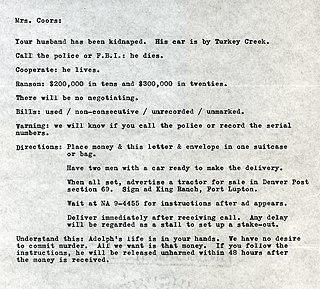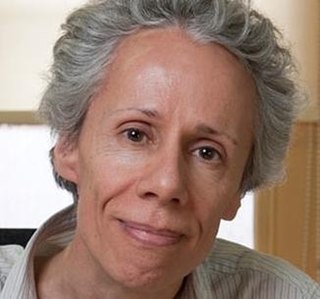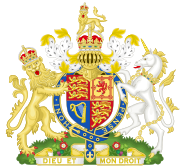
The United Kingdom has three legal systems, each of which derives from a particular geographical area for a variety of historical reasons: English and Welsh law, Scots law, Northern Ireland law, and, since 2007, calls for a fourth type that of purely Welsh law as a result of Welsh devolution, with further calls for a Welsh justice system.

The Anti-terrorism, Crime and Security Act 2001 is an Act of Parliament of the United Kingdom, formally introduced into Parliament on 19 November 2001, two months after the terrorist attacks in the United States on 11 September. It received royal assent and came into force on 14 December 2001. Many of its measures are not specifically related to terrorism, and a Parliamentary committee was critical of the swift timetable for such a long bill including non-emergency measures.

Extraordinary rendition is a euphemism for state-sponsored kidnapping in another jurisdiction and transfer to a third state. The phrase usually refers to a United States-led program used during the War on Terror, which had the purpose of circumventing the source country's laws on interrogation, detention, extradition and/or torture. Extraordinary rendition is a type of extraterritorial abduction, but not all extraterritorial abductions include transfer to a third country.

The Prevention of Terrorism Act 2005 was an Act of the Parliament of the United Kingdom, intended to deal with the Law Lords' ruling of 16 December 2004 that the detention without trial of eight foreigners at HM Prison Belmarsh under Part 4 of the Anti-terrorism, Crime and Security Act 2001 was unlawful, being incompatible with European human rights laws.

Human rights in the United Kingdom concern the fundamental rights in law of every person in the United Kingdom. An integral part of the UK constitution, human rights derive from common law, from statutes such as Magna Carta, the Bill of Rights 1689 and the Human Rights Act 1998, from membership of the Council of Europe, and from international law.

The Supreme Court of the United Kingdom is the final court of appeal in the United Kingdom for all civil cases, and for criminal cases originating in England, Wales and Northern Ireland. As the United Kingdom’s highest appellate court for these matters, it hears cases of the greatest public or constitutional importance affecting the whole population.

In Canada, a security certificate is a legal mechanism by which the Canadian government can detain and deport permanent residents and all other non-citizens living in Canada.

Binyam Ahmed Mohamed, also referred to as Benjamin Mohammed, Benyam Mohammed or Benyam Mohammed al-Habashi, is an Ethiopian national and United Kingdom resident, who was detained as a suspected enemy combatant by the US Government in Guantanamo Bay prison between 2004 and 2009 without charges. He was arrested in Pakistan and transported first to Morocco under the US's extraordinary rendition program, where he claimed to have been interrogated under torture.

Omar Mahmoud Othman, better known as Abu Qatada al-Filistini, is a cleric and Jordanian national. Abu Qatada was accused of having links to terrorist organisations and frequently imprisoned in the United Kingdom without formal charges or prosecution before being deported to Jordan, where courts found him innocent of multiple terrorism charges.
Hider Hanani, alias Amar Makhlulif and kunyaAbu Doha, is an Algerian alleged to be member of the al-Qaeda and GSPC terrorist networks.

A and others v Secretary of State for the Home Department[2004] UKHL 56 is a UK human rights case heard before the House of Lords. It held that the indefinite detention of foreign prisoners in Belmarsh without trial under section 23 of the Anti-terrorism, Crime and Security Act 2001 was incompatible with the European Convention on Human Rights.

Suresh v Canada (Minister of Citizenship and Immigration) is a leading decision of the Supreme Court of Canada in the areas of constitutional law and administrative law. The Court held that, under the Canadian Charter of Rights and Freedoms, in most circumstances the government cannot deport someone to a country where they risk being tortured, but refugee claimants can be deported to their homelands if they are a serious security risk to Canadians.
Administrative detention is arrest and detention of individuals by the state without trial. A number of jurisdictions claim that it is done for security reasons. Many countries claim to use administrative detention as a means to combat terrorism or rebellion, to control illegal immigration, or to otherwise protect the ruling regime.

The constitution of the United Kingdom or British constitution comprises the written and unwritten arrangements that establish the United Kingdom of Great Britain and Northern Ireland as a political body. Unlike in most countries, no attempt has been made to codify such arrangements into a single document, thus it is known as an uncodified constitution. This enables the constitution to be easily changed as no provisions are formally entrenched; the Supreme Court of the United Kingdom recognises that there are constitutional principles, including parliamentary sovereignty, the rule of law, democracy, and upholding international law.
Wednesbury unreasonableness is a ground of judicial review in Singapore administrative law. A governmental decision that is Wednesbury-unreasonable may be quashed by the High Court. This type of unreasonableness of public body decisions was laid down in the English case of Associated Provincial Picture Houses v. Wednesbury Corporation (1947), where it was said that a public authority acts unreasonably when a decision it makes is "so absurd that no sensible person could ever dream that it lay within the powers of the authority".

R v Secretary of State for Foreign and Commonwealth Affairs, ex parte Bancoult [2008] UKHL 61 is a UK constitutional law case in the House of Lords concerning the removal of the Chagos Islanders and the exercise of the Royal Prerogative. The Chagos Islands, acquired by the United Kingdom in 1814, were reorganised as the British Indian Ocean Territory (BIOT) in 1965 for the purpose of removing its inhabitants. Under a 1971 Order in Council, the Chagossians were forcibly removed, and the central island of Diego Garcia leased to the United States for use as a military outpost.

Sonia Burgess was a leading British immigration lawyer. Winstanley-Burgess solicitors, co-founded by Burgess in 1975, became one of the UK's "most respected asylum and immigration law practices".

Errors as to precedent facts, sometimes called jurisdictional facts, in Singapore administrative law are errors committed by public authorities concerning facts that must objectively exist or not exist before the authorities have the power to take actions or make decisions under legislation. If an error concerning a precedent fact is made, the statutory power has not been exercised lawfully and may be quashed by the High Court if judicial review is applied for by an aggrieved person. The willingness of the Court to review such errors of fact is an exception to the general rule that the Court only reviews errors of law.

The Public Prosecution Service v William Elliott and Robert McKee [2013] UKSC 32 is a case decided by the Supreme Court of the United Kingdom concerning admissibility of electronic evidence obtained from an electronic fingerprint reader unit that had not been approved by the Secretary of State as required by Article 61(8)(b) of the Police and Criminal Evidence Order 1989.
A. and Others v United Kingdom is a human rights case decided by the European Court of Human Rights. It unanimously held that holding prisoners indefinitely under the Anti-terrorism, Crime and Security Act 2001 was incompatible with Article 5.













